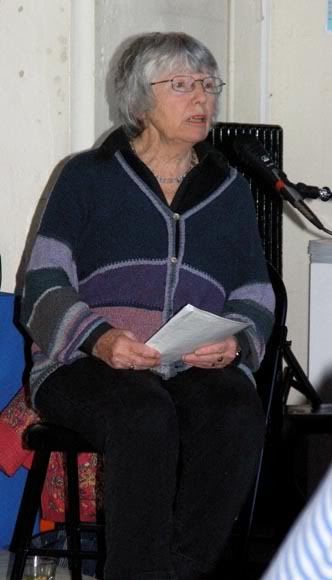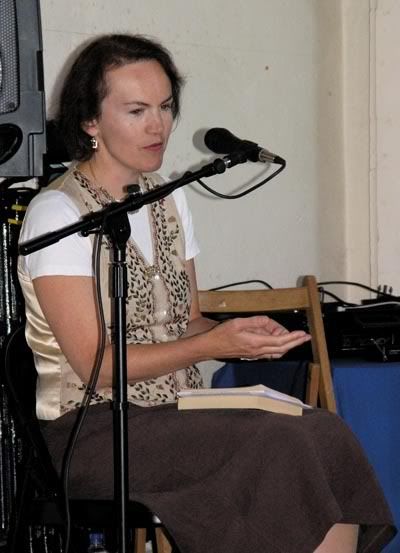
Ann Thwaite
Biography has always seemed a curious medium to me, one I have never been quite at ease with. Naturally, I understand the interest in individual lives, it is just that I have never been able to see lives as a rounded narrative. I like a rounded narrative in the way I like a tale. I like anecdotes and accounts of experiences. It is good to find out about the circumstances of people's lives. It is good to contemplate the arc of human life as an arc, because arcs are a satisfying shape. I do get caught up in character and predicament. It's interesting to ponder why people do what they do and how they do it. I understand all that.
What I have never properly - I mean viscerally - understood is the relationship between that and the way life feels. The way it happens, if you like. There are some of us, I suppose, who spend such energy absorbing and reflecting the nature of that which passes us, in the way a gust of wind passes us, trying to disentangle the wisps of currents, the scent of every small waft, and trying to comprehend the full force of it, that the idea of retrospect as something complete seems almost grotesque, almost inimical.
I know my parents had lives that I could try to describe - and very dramatic lives they would be too - but telling them would not equal them. I also know - or guess - that people think of their lives as shapes, if only because shapes carry meaning, and human beings desire meaning.
And so I quibble and carry on quibbling, writing poems because that's what comes out of all this sense of the peculiarity of the rounded. In other words I read biography as I might a yarn - a yarn with facts in it.
But that's my fault and nobody else's.
*

Midge Gillies
The business of the biographer is both scholarly and romantic. Richard Holmes set the pattern for biography as a kind of love affair in which the soul of the biographer seeks the soul of the subject by an act of both internal and external shadowing. No wonder his 1985 book was called 'Footsteps'. Because biography can be exhaustive work: not just the archives, the correspondence, the contemporary accounts and the background reading, but the project of rescuing and constructing a life that, like yesterday's wind, has passed.
In Ann Thwaite and Midge Gillies we had two strong women characters particularly interested in strong women. Ann has written as much about men as about women, of course, but it is the lost female life she wants to bring out of the dark. Midge has taken Marie Lloyd and Amy Johnson as subjects. Rescuing dead women's lives is an act of historical redress, and requires a passionate commitment. Both Thwaite and Gillies posses that passion, discipline and determination.
Ann, in her part of the conversation, insisted on biography as art and that, I thought, the idea of art, must be where the body - the flesh and blood body - is buried. Because art is, presumably, in the construction of narrative, in the balancing of proportions and the selection of material. Art is construction.
Poetry is clearly art because it is clearly construction. People don't speak poetry: they feel for the shape of it. The shape is overtly a shape, and we know that shape to be beautiful and somehow arbitrary - like life, in a way.
It is the realism of biography that is both its strength and its achilles heel, because we are all interested in the real, in the actual surfaces and obstacles of the world, in the construction of the street down which the wind blows. But the real isn't art. It's the opposite. Art is the form imposed on, or divined in, the real: a mental, spiritual thing that needs to be made because it doesn't exist. Lives did and do exist. Perfectly real people in perfectly real places feeling the wind in their faces.
I am intrigued by biography. I will work at it. Ann and Midge, you have my promise.

No comments:
Post a Comment